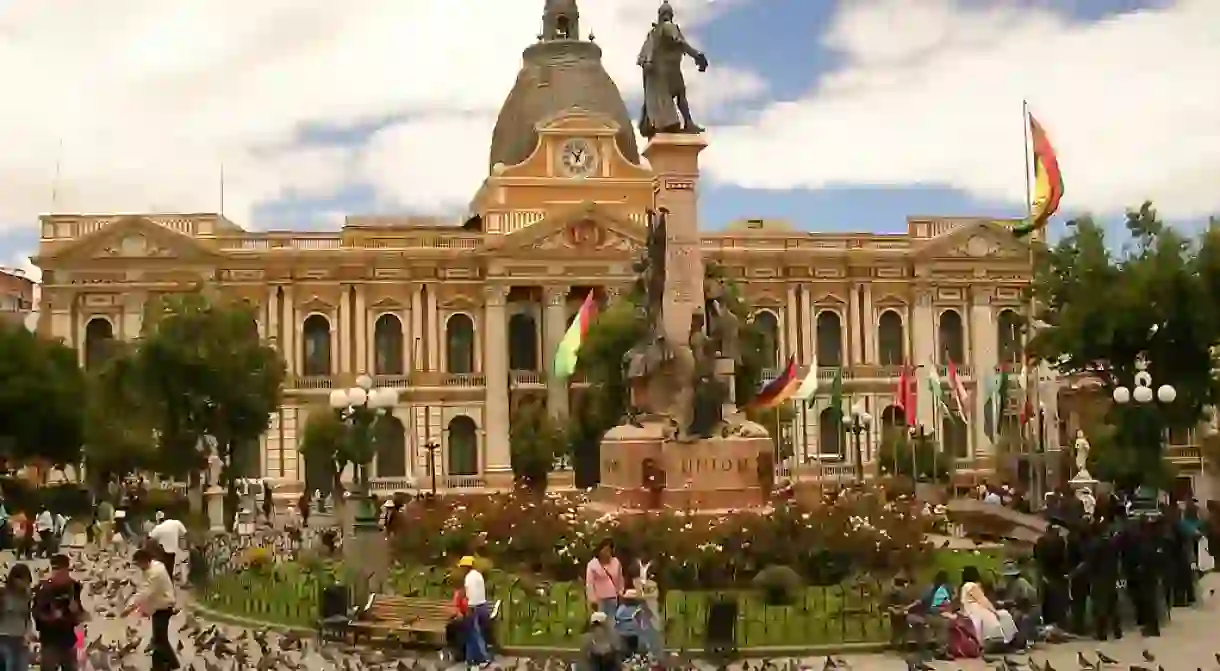Why This Clock in La Paz Runs Backwards

Back in 2014, the large analogue clock perched on the top of La Paz’s House of Congress underwent a rather unusual transformation. The public timepiece overlooking the historic Plaza Murillo was reconfigured to run backwards so that its hands turn counterclockwise, much to the bewilderment of the tourists and office workers below. Shortly afterwards, Bolivia’s Foreign Minister David Choquehuanca proudly declared the unorthodox new mechanism to be ‘The Clock of the South’.
The modern analogue clock is an evolution of the sundial, a primitive timekeeping device first invented by the Romans over 2,000 years ago. In the Northern Hemisphere, the shadow from a sundial naturally moves in a clockwise direction. Down in South America, however, the opposite is true, which partly inspired the unusual change of direction in The Clock of the South.

‘Who says that the clock always has to turn one way? Why do we always have to obey? Why can’t we be creative?’ Choquehuanca asked a group of reporters gathered at a news conference. He sees the backwards clock as paying homage to the nation’s indigenous heritage, a way for the masses to more closely identify with their indigenous roots. After all, the indigenous Aymara and Quechua peoples have a traditional belief system which dictates that the past lies ahead while the future lies behind.

In addition to the clock in Plaza Murillo, a number of foreign delegates attending the G77 Summit of 2014 in the eastern city of Santa Cruz received miniature desktop versions of the backwards clock as a gift from the Bolivian government. Stranger still, the clocks were designed in the shape of the Bolivian border from before the country lost its coastline to Chile in the 1879 War of the Pacific – a profoundly nationalistic statement.

Choquehuanca spoke of plans to extend the program into all government departments nationwide, although his proposal never eventuated as the House of Congress still contains the only backwards clock in the country. In response to mounting criticism, Choquehuanca insisted the new system would not be imposed on the population. ‘If you want to buy a clock of the south, do so, but if you want to continue using a clock of the north, you can continue doing so,’ he said.
Not everyone has taken a liking to the backwards clock agenda. Critics have labelled it confusing and unnecessary, while opposition front runner Samuel Medina declared it ‘a sign of the country’s regression’.













